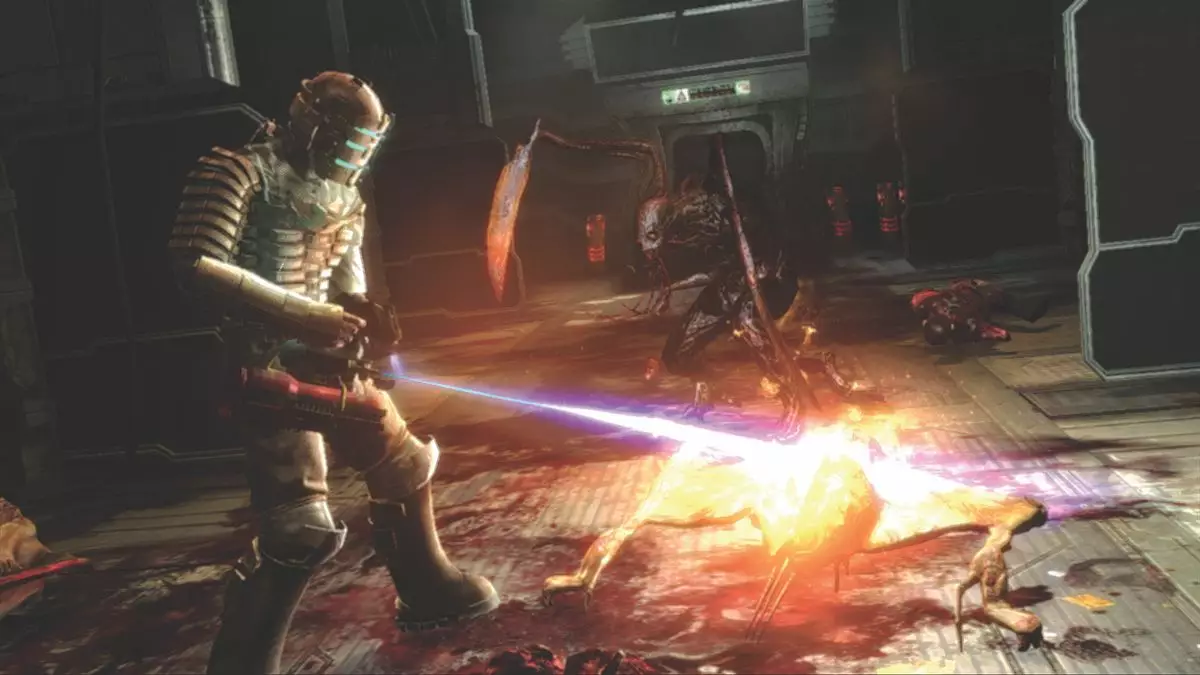The Dead Space trilogy has carved an indelible mark on the landscape of horror gaming since its initial release, captivating audiences with its eerie atmosphere, immersive storytelling, and visceral gameplay. Developed by EA’s Visceral Games, the series revolutionized the genre, bringing forth a blend of intense horror and sci-fi elements that left an enduring legacy. Despite the immense popularity of both the original trilogy and its recent remake, it appears the original creators are facing daunting barriers in their quest to bring forth a new installment, specifically a much-anticipated Dead Space 4.
In a recent conversation with Dan Allen Gaming, key figures from the original team, including Glen Schofield, Christopher Stone, and Bret Robbins, revealed their attempts to create a sequel. Unfortunately, EA’s initial response was one of disinterest, showcasing the complex hurdles that developers often encounter in the current gaming industry climate. This response both reflects EA’s strategic considerations and the broader industry trend of hesitance towards innovation, especially in established franchises.
The comments made by Stone resonate deeply within the community of developers and fans alike. As he poignantly articulated, there’s a palpable caution pervading the industry today, which discourages ambitious new projects. “Take it with a grain of salt,” he suggests, expressing a muted optimism about the potential redemption of the franchise in the future. The looming question remains: why is there such an aversion to taking risks on beloved IPs?
In light of the gaming community’s passionate advocacy and the critical acclaim surrounding the latest remake, the decision to dismiss a sequel seems perplexing. Furthermore, Schofield’s statement about their readiness to return to the Dead Space universe “in a heartbeat” underscores the unwavering commitment of the original team to their creation. This commitment raises eyebrows about the decision-making processes within major companies like EA and the implications this has for players yearning for new content.
Interestingly, Schofield and his team have ventured into new territories with The Callisto Protocol, a title that sought to capture the essence of survival horror but ultimately fell short of expectations. While the game boasts impressive visuals and an engaging storyline, critiques centered around its combat mechanics highlight the challenges of innovating while staying true to the core tenets of horror gaming. Many fans and critics alike have observed how the spirit of Dead Space remains unreplicated, leading to contrasting reactions to the two titles.
Reflecting on this disparity raises critical questions: What elements constitute the essence of a horror game? How do developers honor the legacy of successful franchises while attempting to innovate? In its core gameplay, Dead Space strikes a balance between storytelling and visceral engagement, drawing players into the haunting corridors of space horror. The Callisto Protocol, while attempting to build upon that legacy, seemingly suffered from a failure to adequately shift its combat dynamics, showcasing the precarious nature of evolving a well-loved formula.
As the gaming community looks ahead, the prevailing clamor for Dead Space 4 signals a broader desire for originality within established franchises. The growing momentum behind remakes and sequels exemplifies a paradox within the industry: while nostalgia drives sales, it also creates a barrier for new stories and innovative mechanics to flourish. The unfulfilled promise of a Dead Space 4 particularly resonates with those who value narrative depth and immersive gameplay.
Notably, as fans rally behind the original creators’ vision, there is hope that EA might reconsider its stance. After all, the success of the recent remake showcases the franchise’s ongoing relevance in today’s market. Furthermore, whispers of remakes for Dead Space 2 and 3 stir anticipation, suggesting that there may still be an appetite for stories rooted in this universe.
Ultimately, the future of Dead Space hinges not only on the creators’ willingness to revisit their past but also on the industry’s ability to embrace risk and creativity. If EA and other gaming giants can foster an environment where innovation is celebrated rather than stifled, we may indeed see the return of one of horror gaming’s most revered legacies. The hope remains that the legacy of Dead Space will continue to grow and evolve, offering players new yet familiar experiences that keep the horrors of space alive.


Leave a Reply